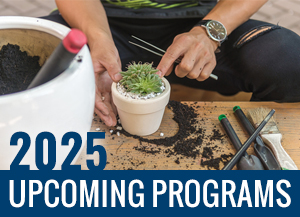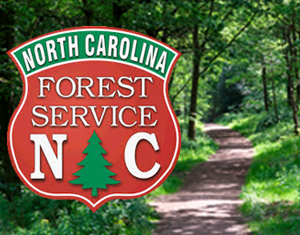FAQ Categories
General
Forsyth Community Gardening (FCG) has a Guide to Starting a Garden in Forsyth County with step-by-step guidance on forming a leadership
team, selecting a good site, organizing the garden, and designing, preparing,
and planting your site. Please review
this page carefully to get an overview of what’s involved and the resources
available to support your efforts. We also encourage your group to view our Community Gardening 101 webinar (32 minutes) for a for a comprehensive overview of starting and sustaining a community garden. (When you’re finished, please fill out this brief evaluation!)
After reviewing the Guide, Forsyth Community Gardening asks
the community groups complete two steps
before contacting us to request a site visit:
1) Organize a leadership team of at least 5 - 10 gardeners who are committed to helping establish and maintain the garden:
- For tips on getting (and keeping!) folks involved, see the handout Growing Community in Community Gardens, also available in Spanish.
- We also have a packet of resources on OrganizingYour Community Garden, which contains interest surveys that you can adapt for your garden.
2) Gather information about potential garden sites:
- All garden sites should be relatively flat, have at least 6-8 hours of direct sunlight per day, and have access to a water source.
- If you are working with an organization (e.g., a faith community, school, recreation center, or social service agency) and plan to develop the garden on the property, you will need the support of the administration.
- If you plan to develop a vacant lot, you’ll want to inquire with the owner about obtaining a lease (written permission to use the land). For a sample lease, see pp. 8-18 in Ground Rules: A Legal Toolkit for Community Gardens. You may need to apply for a Special Use Permit as well. More information is available on the City of Winston-Salem’s Urban Agriculture website, and Forsyth Community Gardening can assist garden groups in this process.
It is also highly recommended that your group identify one
or more people to participate in the Mentor Program, which offers training and
support for garden leaders in both community organizing and sustainable
horticulture.
You may also wish to review our FAQs on “How can we recruit
more community garden members and volunteers?” and “Where can we get funding
and materials for a community garden?”
Once you have a group together and information about
potential sites, please contact Forsyth Community Gardening and set up a site
visit to discuss next steps. We look
forward to working with you & your group!
Creating and sustaining a collaborative community of people
is the most important aspect of community garden leadership, but often receives
less attention than land, funding, materials, and horticultural issues. The most sustainable community gardens invest
time and energy in engaging new members, understanding their interests and
skills, defining and distributing leadership roles, and creating systems that
help people work well together.
Recruiting Garden
Members:
The most sustainable strategy for maintaining a thriving
community garden is to build up a base of local members who are involved in
decision-making about the garden and participate in regular workdays.
- For tips on getting (and keeping!) folks involved, see the handout Growing Community in Community Gardens, also available in Spanish.
- Forsyth Community Gardening has a packet of resources on Organizing Your Community Garden, which contains interest surveys that you can adapt for your garden.
- The Guide to Starting a Garden in Forsyth County has ideas about how to set up systems to share leadership responsibilities and ensure that everyone participates in planting and maintaining the garden (see Step 3: Organizing the Garden).
- Garden groups in Forsyth County, NC may register with Forsyth Community Gardening, which will put your garden in our Map & Directory. Sometimes, folks who are interested in volunteering with a garden use the map to find nearby opportunities.
Recruiting Volunteer
Groups:
From time to time, community garden groups may have a project that could benefit from a large group of outside volunteers under the direction of skilled garden members. Here are few places to look:
- HandsOn Northwest NC will post service
opportunities in their online volunteer/organization matching tool and often
send out requests for volunteer projects.
They also match corporate volunteer groups with suitable projects. Please contact HandsOn NWNC for details.
- Crosby Scholars are high school students who, among other things, complete community service hours. The program will help publicize opportunities from community groups. Please contact Crosby Scholars for details.
Each garden group should develop a plan to secure funding
and materials for establishing their garden, as well as for ongoing planting
and maintenance.
Start-up costs may include grading, primary tillage (for
in-ground gardens) or materials for raised beds (lumber, hardware, and
topsoil), irrigation equipment (e.g., hoses and a watering-wand), a toolshed or
large lockbox, tools, fencing, path materials (such as rock dust), and any
perennial plantings (such as blueberry bushes or native perennial plants).
Ongoing expenses will include materials to repair raised
beds, water, compost and other soil amendments, fertilizers, vegetable
transplants, and vegetable seeds.
Fundraising plans usually involve some combination of the following:
- Small grants: A list of grant opportunities for community and school gardens can be found in the document Resources for Gardens in Forsyth County under ‘Grants.’ Grants are listed in two sections: general community garden grants, and grants for educational gardens involving children and youth. Specific groups may be eligible for other grants. For example, faith community garden groups should check with their national denomination regarding small grant opportunities.
- In-kind donations (or discounts): Prepare a brief summary of your project, who will benefit, and the impacts you will achieve. Use this to request donations from local businesses. Many will donate materials or offer discounts.
- Grassroots fundraising activities: For example, you could organize a concert in the garden with a small entrance fee and food for sale.
- Support from a sponsoring organization (for example, a faith community, school, or nonprofit): If a garden is an essential part of an organization’s programming, there should be at least modest allowance for periodic and ongoing expenses in the organization’s budget. Take time to educate decision-makers about the value of the garden in achieving the organization’s mission, and provide an estimated budget for ongoing costs (e.g., materials to repair raised beds, soil amendments, fertilizers, vegetable transplants, replacement tools and irrigation equipment, and transportation of materials). Explain how assistance with these costs will allow the garden group to focus on planting, garden maintenance, and organizing educational activities.
- Plot fees: Many ‘allotment gardens’ (which offer spaces for individuals or families to grow their own food) charge a modest annual fee, often on a sliding scale, to cover expenses such as compost deliveries and water.
For more ideas, see Fundraising for Community Gardens, Community Garden Grant Writing Tips, and the webinar ‘School Garden Program Sustainability and Finances’ (54 min) from the National School Garden Network.
Please note that Forsyth Community Gardening, as a program
of Cooperative Extension, is primarily an educational and capacity-building
organization. We can work with garden
groups to develop fundraising plans, but can offer only very limited material
resources depending on availability (for example, donated vegetable seeds,
cover crop seeds in summer and fall, donated raised bed frames, and occasional
materials giveaways to workshop attendees).
Mentor volunteers always have first priority for any available
materials. Learn more about the MentorProgram and how to get involved!
Soil test kits are available outside our office 24/7. Learn more in this news story.












